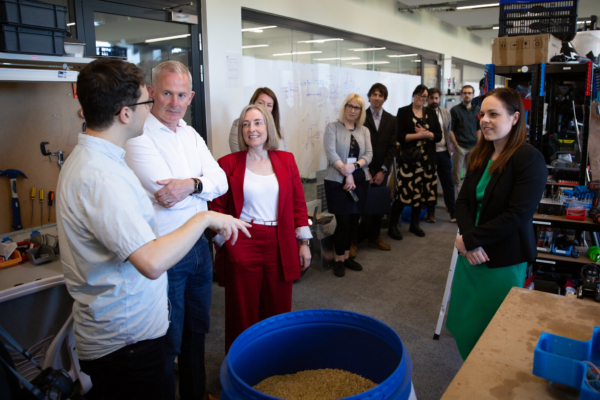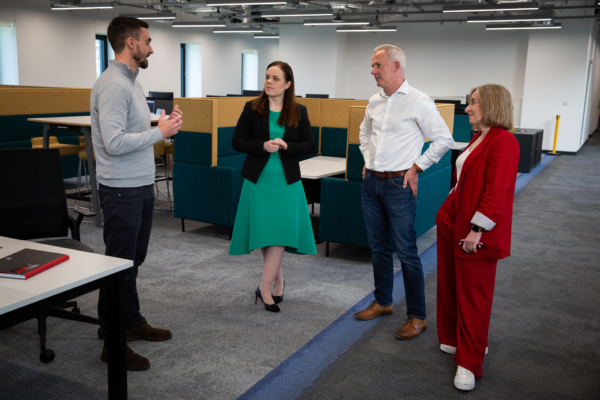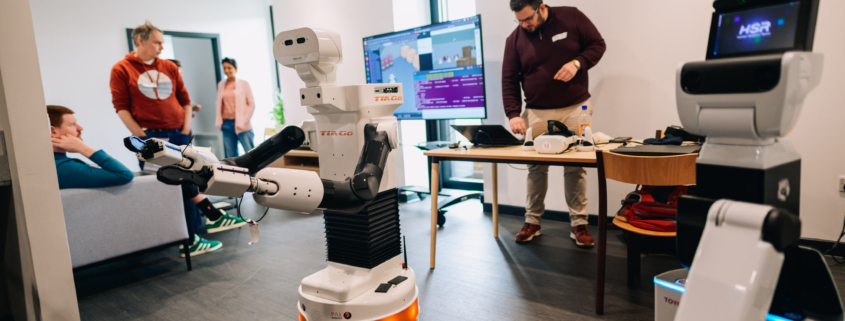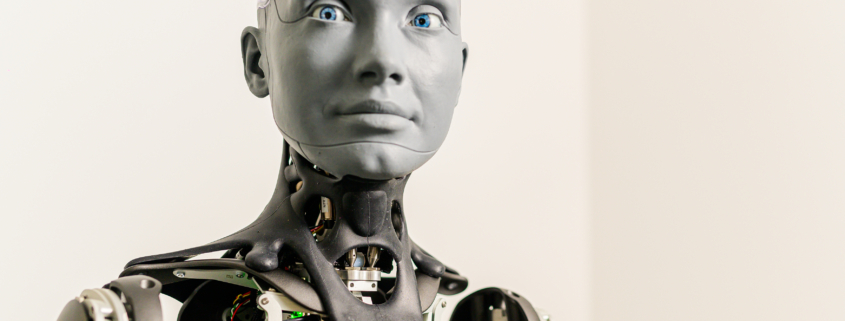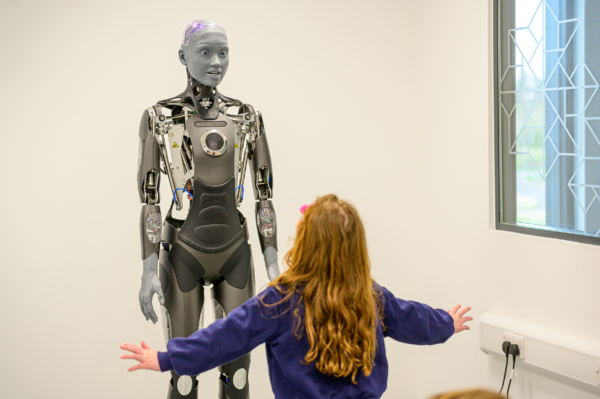Robotic ‘coaches’ aiding upper limb rehabilitation for stroke and brain injury survivors have been successfully trialled in Vienna, Austria. This international pilot study was led by researchers from the National Robotarium.
The VITALISE (Virtual Health and Wellbeing Living Lab Infrastructure) project, funded by the Horizon Europe programme and led by the National Robotarium’s Human Robot Interaction (HRI) team, has developed a system where socially assistive robots communicate with patients using a headset that detects brain neural activity.
Developed with the AIT Austrian Institute of Technology, the robot processes these signals to understand the user’s movement intention during exercises, providing real-time verbal motivation, visual mimicry, and feedback as they complete specific movements.
This research aims to make it easier and more engaging for people to adhere to prescribed self-managed rehabilitation routines by providing personalised support based on individual needs, cognitive capability, and exercise pace.
“We envision a future where patients have access to personalised robotic coaches that support clinicians and experts to deliver even more successful rehabilitation journeys.” – Professor Lynne Baillie
Around 80% of acute stroke and brain injury survivors have an upper limb impairment, limiting arm movement. This often long-term impairment can significantly affect an individual’s independent living and daily activities.
Improving functions after cognitive injuries requires task-specific repetitive exercise. However, 60% of stroke survivors may suffer from forgetfulness, and only 31% complete their prescribed rehabilitation routines. Lack of motivation and immediate progress indicators can contribute to this low exercise uptake.
Over three months, the VITALISE team worked with 16 stroke and brain injury survivors and six therapists to test the robot-assisted rehabilitation system’s ability to understand user intention and provide personalised motivation. They explored whether a robot could detect a person’s intended exercise movement using brain signal data and then mimic that motion in real-time to demonstrate an exercise.
Through questionnaires and interviews, researchers gathered feedback on the robot’s success at motivating exercise, building user trust, and overall ease of use. This evaluation has helped investigate the potential for socially assistive robots with neural interfaces to provide tailored support for self-managed rehabilitation.
The National Robotarium is part of the Data-Driven Innovation initiative, supported by £21 million from the UK Government and £1.4 million from the Scottish Government. The initiative aims to turn Edinburgh into the data capital of Europe and is part of the wider £1.5 billion Edinburgh and South-East Scotland City Region Deal.
Lynne Baillie, Professor of Computer Science at Heriot-Watt University and academic lead at the National Robotarium for human-robot interaction, assistive living and health, said:
“We know that sustained, repetitive exercises are crucial for recovery after a stroke or brain injury. However, without supervision, it can be challenging for survivors to stay motivated. Our research shows the incredible potential for these technologies to understand users’ needs and empower them to achieve recovery goals.
“At the National Robotarium, our ambition is to develop automated technologies that assist and empower people, including those managing health conditions, to remain independent in their homes for longer. This successful pilot represents an important milestone toward that vision, demonstrating how we can thoughtfully design robotics to deliver better health outcomes for vulnerable groups like stroke and brain injury survivors.”
Markus Garschall, scientist at the AIT Austrian Institute of Technology, Center for Technology Experience, and Vice President of AAL AUSTRIA, added:
“Especially in the field of eHealth, co-design methods are very helpful and work well. It was important for us to examine the user experience as well as the feasibility of the approach for both people with hemiparesis and physiotherapists.
“At the same time, the transnational collaboration with scientists from Scotland was also very inspiring; we need much more European cooperation and exchange, especially in the healthcare sector.”
The pilot study was funded under the European Union’s Horizon2020 Research and Innovation Programme as part of the larger VITALISE project for advancing rehabilitation infrastructure.
Watch the Vitalise project in action.


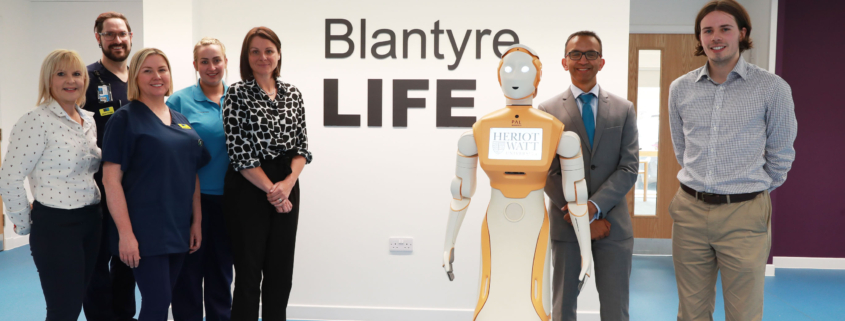
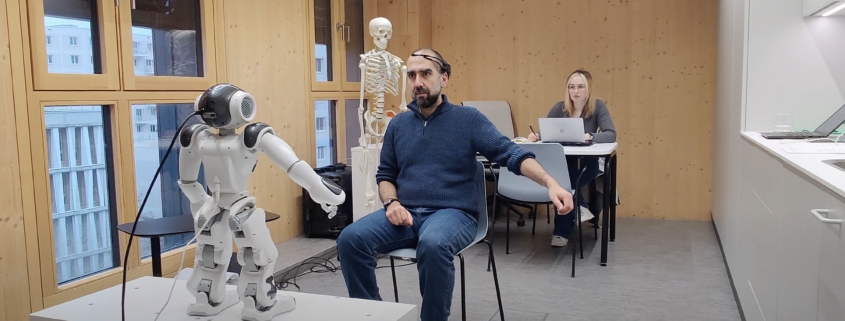
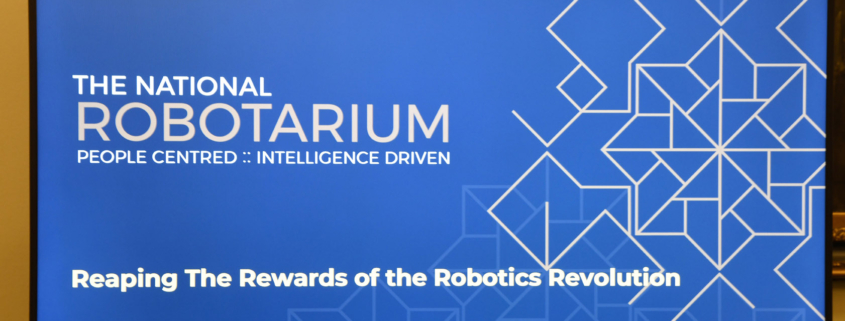

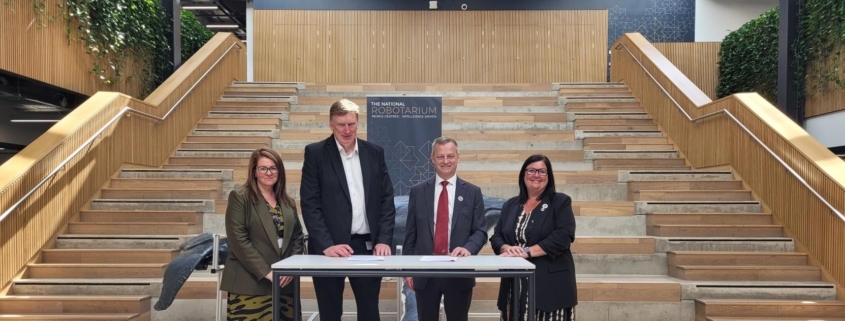
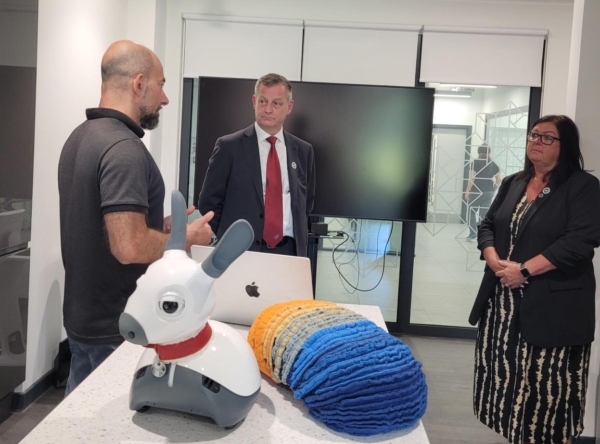
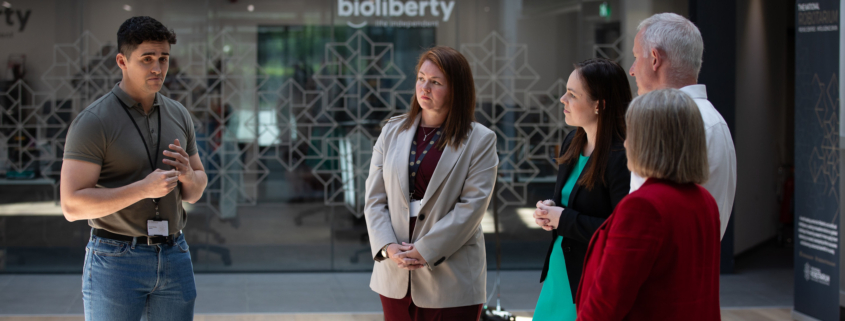 Scottish Government Flickr
Scottish Government Flickr